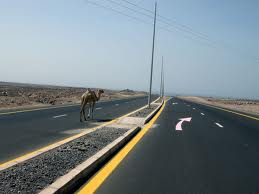When investing in an economy, a company needs to conduct a cost-benefit risk analysis to determine whether the country is viable for investment; Company A wishes to invest in Djibouti, to determine the riskiness and viability of the intended venture, this paper undertakes the cost benefit-risk analysis of the country of intended operation, Djibouti.
Djibouti is a horn of Africa country that to the southwest, west, and south and in north borders Somalia, Ethiopia, and Eretria respectively; to the east and the remaining parts, the country borders the Red Sea and the Gulf of Aden. (Balwo, 2010). The strategic location of the country is likely to work for company A’s good as it can diversify its operations to other countries but maintain the operating base as Djibouti. On the other hand, the country has signed a peace treaty with its neighbors so doing business with them is facilitated.
Political environment
The political system of Djibouti is not founded on stable structures as there have been recurring political rivalries in the country; during hardly undemocratic elections (the country maintains a one-party system), there are civil wars as people fight for power. The volatile political temperature is likely to affect Company A’s business negatively; alternatively, volatile Somalia creates tension in Djibouti a factor that limits international investment in the country; with such a notion, Company A’s international business may be limited.
Economic situation
The economy of the country is controlled by its strategic location where it engages primarily in the service industry; the free trade zone of northern Africa works for its good as more landlocked countries use the county’s ports to get goods into their economies. The influx of trade across the country is likely to bring more customers to company A thus improve on its productivity. To a large portion, the country experiences scanty rainfall that limits agricultural production despite its rich soils. The main transport services offered by the economy include transshipment, transit, and refueling center; although the majority of the citizens are in the city center, the country is not very rich in minerals and natural resources, it therefore heavily relies on international trade to cure its trade deficits. Dependency with international trade means that Company A will operate in an economy whose business with international trade has been opened, this is likely to favor its business (International Monetary Fund, 2004).
Religion, culture, and social life
The social life of the people is dominated by the teachings of the Muslim religion and so do the teachings affect business; this includes the banking systems, the political beliefs, way of solving issues, and the general structure of life (Laudouze, 1982).
(Elmore, 2011). Company A needs to ensure that its business processes are aligned to the structure and requirements of the Islamic laws; this is in terms of the type of business. For example, the Muslim culture prohibits the eating of pork, Company A should thus ensure that its business does not involve such.
The level of education in Djibouti varies; there are tertiary colleges and universities which make professionals that the company can use for its development. On the other hand, there is a group of semi-literate people who can offer labor to the company at a low rate.
Infrastructures
The country’s transport and communication infrastructures are still in their development stages; however, the port offers a good starting point where it connects the county with the rest of the world.
To facilitate trade and facilitate transshipment, transit, and fueling, the countries budget has allocated a huge sum to the development of transport, communication, and other infrastructures. Company A should not fear the state of the infrastructures as there are efforts to improve them; on the other hand, the state is the same in other developing countries.
The diagram below shows a sample of the road section in Djibouti:

Computers are used in different sectors in Djibouti; however, their usage is limited by the level of technology adopted. Company A should not feel threatened by the level of technology as the government has taken measures to improve it; one of the projects currently ongoing is the installation of a fiber-optic network to assist on the internet. The most important thing that the company should consider is developing a technology that can assist it to make high-quality products and services; this will make it more competitive than other similar businesses in Djibouti.
The banking system in the country is dominated by foreign banks that follow the Islamic banking system; with this, the economic development has to follow the requirements of the banking system. The government emphasizes that when doing business there is a need to follow the raid business laws; in most cases, the laws favor the Muslim’s way of living. The Islam banking system can be beneficial to Company A as it facilitates trade like any other conventional bank with its adherence to Muslim teachings. With the international environment, the country maintains a healthy relationship with the outside world as the world is the main source of its business; the relationship is likely to open a business window to Company A (Aboubaker and Yohanis, 2000).
References
.Aboubaker, A. and Yohanis, M., 2000. Historical dictionary of Djibouti. Johannesburg: Scarecrow Press.
Balwo, T.,2010. Djibouti: Outline of Djibouti. New Jeysey: Textstream.
Elmore, L.,2011. Djibouti. New York: Orion Publishing Group, Limited.
International Monetary Fund., 2004. Djibouti: statistical appendix. Geneva: International Monetary Fund.
Laudouze, A., 1982. Djibouti. Johannesburg:KARTHALA Editions.
